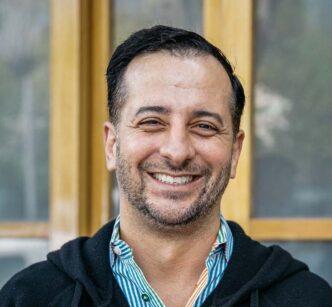When mortgage rates dipped to record lows during the pandemic — some as low as 2.5%. Millions of Americans jumped at the chance to buy or refinance their homes. Fast forward to 2023, and rates surged past 7%, with current averages hovering around 6.84% for a 30-year fixed APR. For many, the dream of homeownership has since felt increasingly out of reach. But what if homebuyers could still lock in those ultra-low rates from years past? That’s exactly what Roam, a New York-based real estate startup, is trying to make possible. Roam focuses on a little-known home financing option called assumable mortgages.
Loans that can be transferred from the seller to the buyer, along with the original interest rate.
Founded in late 2023 by Raunaq Singh, a former product leader at Opendoor. Roam has already helped “several hundred” buyers close on homes using assumable loans. The company facilitated over $200 million in home sales during 2024. And claims more than 200,000 buyers have joined its platform in the past year. Roam charges a 1% fee per transaction — meaning its 2024 revenue was likely around $2 million.
Singh believes assumable mortgages can dramatically cut costs for buyers — in some cases slashing monthly payments by up to 50%. That’s a game-changer in today’s housing market, where high interest rates are a major hurdle.
Still, buyers need to cover the seller’s equity. Roam helps bridge that gap with solutions that allow for as little as 5% down. Singh explains: if you’re buying a $420,000 home with a 2.25% interest rate and the seller has $135,000 in equity, you don’t need to cover it all upfront. By bringing in $84,000 and financing the rest, you could land a blended rate of just 3.45%. This is far below market rates today.
So far, Roam operates in 17 states including Texas, California, Florida, and North Carolina, with plans to expand nationwide by the end of 2025. Singh predicts that the company will help facilitate $1 billion in home sales next year, as more buyers learn about the benefits of assumable mortgages.
That momentum has already attracted serious investor interest. Roam recently closed an $11.5 million Series A round led by Keith Rabois at Khosla Ventures. He’s no stranger to Singh or the real estate space. Rabois co-founded Opendoor and has backed Roam in every round to date. Other backers include Founders Fund, along with early supporters like Eric Wu (Opendoor co-founder), Tony Xu (DoorDash), Dylan Field (Figma), and Paul Gu (Upstart).
According to Rabois, Roam has the potential to reshape the housing market. While many startups promise modest savings, he believes Roam could help up to 30% of Americans save over $200,000 across the life of their mortgage.
Roam’s platform addresses a long-standing problem: many buyers and agents simply don’t know which listings have assumable mortgages — and even when they do, the process can be painfully slow. Singh says that on platforms like Zillow, it’s nearly impossible to filter for assumable loans. In contrast, Roam surfaces over 2,000 homes with assumable mortgages in cities like Houston alone.
But discoverability isn’t the only issue. Traditionally, getting approval for a mortgage assumption could take over a month, often leading to delays or failed deals. Roam speeds things up by offering pre-approvals before an offer is submitted — boosting seller confidence and closing success rates.
Without Roam, Singh says closing an assumable mortgage can take up to 180 days. On Roam’s platform, that’s down to just 45 days — and if the company doesn’t meet that timeline, it promises to cover the seller’s mortgage payments until the deal is done.
Beyond faster closings, Roam also ensures that sellers are fully released from financial liability. That means any missed payments by the new buyer won’t impact the seller’s credit, offering peace of mind for both parties.
Roam currently operates with a lean team of just 12 employees, growing at a steady pace while prioritizing efficiency. Singh notes that while the team has grown about 2.5x year over year, revenue has surged nearly 5x — a sign that the company’s tech-driven model is scaling well without ballooning costs.
And the opportunity is massive. Singh estimates that $1.4 trillion worth of assumable FHA and VA mortgages were originated during the low-rate boom of 2020–2021. That’s about one-third of all U.S. homes financed or refinanced during that period — homes that are potentially eligible for assumption today.
As more people search for affordable paths to homeownership, Roam could be the key to unlocking access to those long-lost low rates — and helping buyers save thousands in the process.












